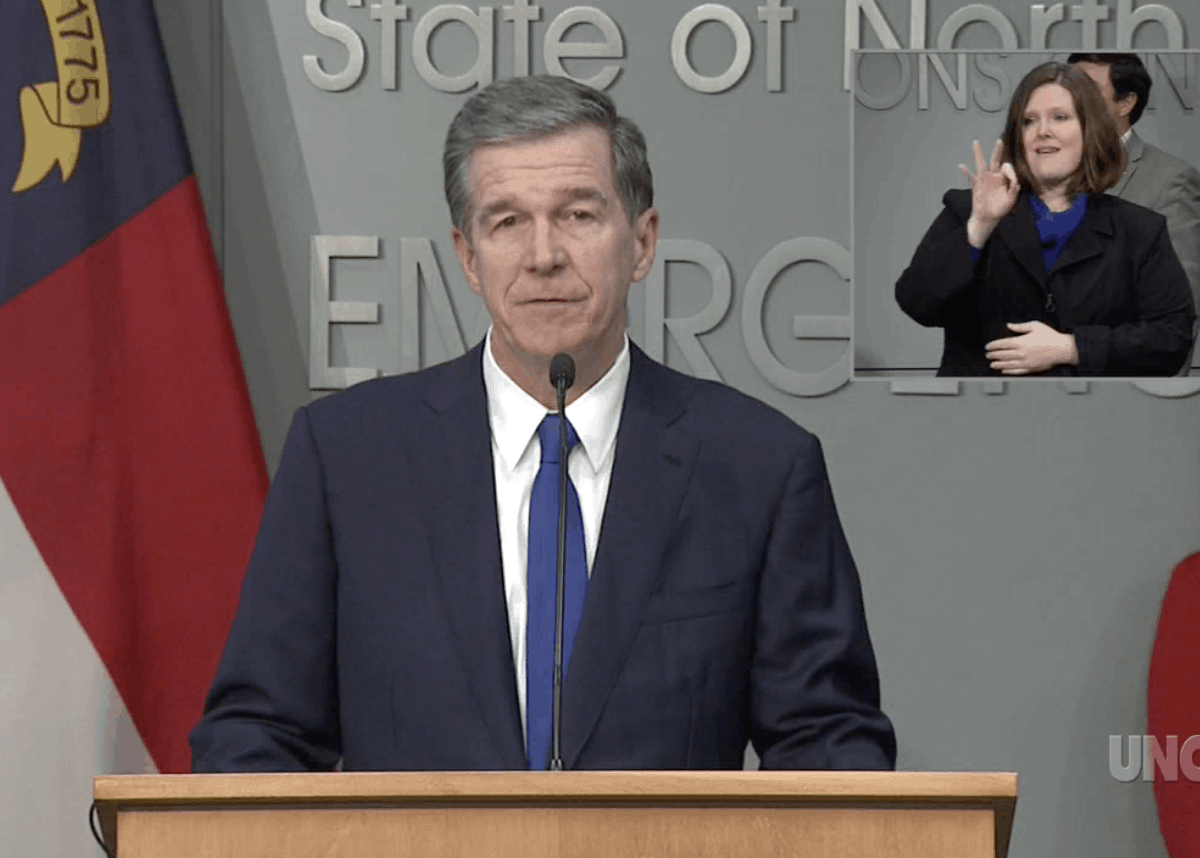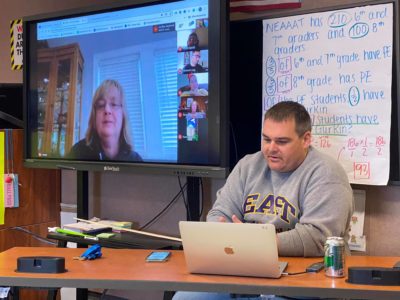
Update 6:22 p.m.: A press release from the State Board of Education and state Superintendent of Public Instruction Mark Johnson states that the U.S. Department of Education has approved the federal waiver for assessments and accountability. The release says the Board and Johnson are working with the General Assembly to get the needed waivers from them as well.
The press release states that the hope is for in-school instruction to start up again May 18, if public health experts say it’s possible.
See full story below.
With the number of confirmed cases of COVID-19 in North Carolina at 297, Gov. Roy Cooper announced today that he is extending the order to close all public schools until May 15. Previously, schools were only slated to be closed until March 30.
Additionally, Cooper said his plan is for not only teachers but also all support staff to get paid for the duration of the school closures. He said he has tasked state Superintendent Mark Johnson and the State Board of Education with coming up with a plan to make that happen. He also said that he hopes schools will reopen this school year.
“During the great depression, North Carolina leaders made sure the schools stayed open despite tremendous funding challenges,” Cooper said. “In that spirit, I’m not ready to give up on this year of school.”
He also said he has asked the State Board of Education, the Department of Public Instruction (DPI), and the General Assembly to come up with plans to continue instruction during this prolonged closure of school buildings due to COVID-19.
The news from the governor comes hours after a State Board of Education meeting where Board members voted to request a waiver for assessment and accountability from the federal government. The federal government is allowing states to apply for the waiver and it is expected that any applications will be approved. If approved, this would likely mean no End-of-Grade or End-of-Course exams this year. The tests, which are used for a host of purposes including coming up with the state’s A-F school performance grades, would also need to be waived by the General Assembly.
“While we do not know how this pandemic will ultimately impact our lives …we know with certainty that the resolve and dedication of North Carolinians across our great state will continue to rise to the challenge,” said State Board Chair Eric Davis during the State Board of Education meeting.
Tammy Howard, director of accountability services for the state Department of Public Instruction, said that seeking the waiver was necessary because the tests must be administered in such a way that the validity and reliability of data can be ensured.
“We cannot do that at this time,” she said.
Both Johnson and State Board of Education Vice Chair Alan Duncan were in attendance at the governor’s press conference.
Johnson said that groups within DPI have already been working on a number of issues raised by COVID-19, including testing elimination, staff compensation, calendar flexibility, and graduation. And he offered advice to parents.
“My message to parents: If you haven’t already, now is the time to start a routine with your child,” Johnson said. “We cannot treat this as a long break.”
Duncan added that state education officials are working with institutions of higher education to make sure that students slated to graduate can transition smoothly out of high school.
“There will be hundreds of decisions to make … as we redefine school this year and beyond,” he said, before adding: “We are in stormy and uncharted waters. We surely will not hit every wave perfectly.”
Duncan said that in the midst of the COVID-19 pandemic, many schools are being opened as emergency child care sites. Meanwhile, Mandy Cohen, secretary of the state Department of Health and Human Services, said at the press conference that the state is working on new health guidelines around child care.
Child care is being prioritized for “first responders, emergency management staff, hospital staff, frontline healthcare providers, nursing and adult group home staff, child care program staff, food service staff, and others providing critical support, as well as children who are homeless or in unstable or unsafe living arrangements,” according to a press release from Cooper’s office.
Both the governor and Johnson highlighted the enormous amount of work being done to provide meals to kids who need them. The governor’s press release stated that “more than 1,165 schools had already served 1.2 million meals and 6,500 snacks,” as of March 22.




